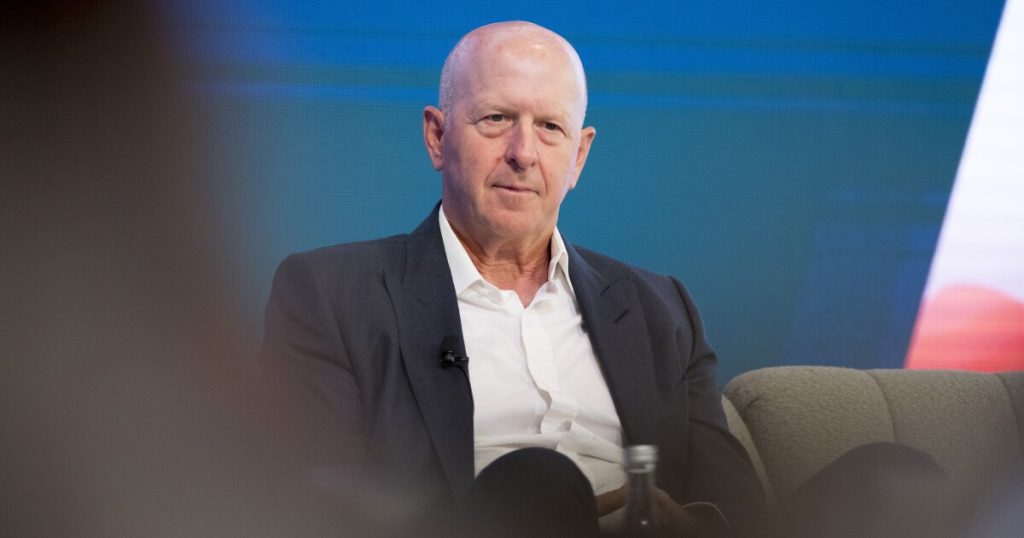What a difference one quarter can make.
In January,
Three months later, he was singing a different tune.
“We are entering the second quarter with a markedly different operating environment than earlier this year,” Solomon said Monday on a conference call unveiling
The primary cause of the turnaround, the CEO said, is the trade policies of the same administration that once gave him such cause for optimism.
Since taking office, President Trump has imposed
This confusion, Solomon said, is taking a toll on
“Our clients, including corporate CEOs and institutional investors, are concerned by the significant near-term and longer-term uncertainty that has constrained their ability to make important decisions,” Solomon said. “This uncertainty around the path forward and fears over the potentially escalating effects of the trade war have created material risk to the U.S. and global economy.”
Not that any of this has stopped
Earnings blew past Wall Street’s expectations. Revenue totaled $15.1 billion, above analysts’ average estimate of $14.7 billion, and earnings per share were $14.12, beating estimates of $12.27, per S&P.
It was the third highest-revenue quarter in
During the call on Monday, Solomon said
“We obviously saw significant moves in equity markets as people positioned for a different kind of trade policy during March … which actually led to higher activity for us in a variety of ways,” Solomon said. “We’re early in the quarter, but so far the business is performing very well and clients are very active.”
Not every business unit thrived during the first quarter. Platform Solutions, which includes what remains of
Even so, some analysts considered the Platform Solutions results an asterisk on
“While small, Platform Solutions continues to be a thorn in the side,” Schorr wrote in a research note. “We’ll point this out but we don’t think it’s much more than taking a full comp accrual on a monster revenue quarter.”
While emphasizing the costs of the new trade war, Solomon left the door open for the Trump administration to change course.
“We are encouraged by the administration’s recent actions to pursue a more gradual policy process that allows for considered negotiations with many countries,” he said. “But how policies will evolve is still unknown.”

